The death toll from clashes among rival protesters in Iraq’s southern hot spot of Nasiriya has risen to six, medics told AFP, as other cities imposed security measures.
Violence erupted on Friday between the dwindling members of the October 2019 anti-government protest movement and supporters of populist Shia cleric Moqtada Sadr, who had called on his followers to hit the streets in a show of force.
In the southern city of Nasiriya, anti-government activists accused Sadrists of shooting at them and torching their tents in their main gathering place of Habboubi Square.
Clashes continued into the night, with medics reporting a total of six dead by Saturday morning, five of them from bullet wounds, and at least 60 wounded.
But on Saturday morning, anti-government protesters were already back in the square to rebuild their camp, an AFP reporter there said.
Authorities sacked the city’s police chief, launched an investigation into the events and imposed an overnight curfew in Nasiriya.
Other cities also introduced security measures, with Kut and Amara further north setting new movement restrictions.
READ MORE:
Iraqi forces clash with protesters as tensions flare again
Hub of protests
Nasiriya was a major hub for the anti-government protest movement that erupted in October 2019.
It was also the site of one of the bloodiest incidents of the uprising nearly one year ago on November 28, when more than three dozen died in protest-related violence.
The deaths sparked outrage across Iraq, including by the country’s top Shia authority Grand Ayatollah Ali Sistani, and prompted the resignation of then prime minister Adel Abdel Mahdi.
Kadhemi’s plan to hold early elections is seen as an effort to reach out to protesters.
The polls will take place under a new electoral law agreed by parliament that will see district sizes reduced and votes for individual candidates replacing list-based ballots.
Most observers expect a delay of at least a few months while political parties prepare their campaigns, but experts say the new system is likely to benefit Sadr and his candidates.
READ MORE: Iraqis mark anniversary of October 25 protests with more demonstrations
Anti-corruption protests
Sadrists had already won big in the May 2018 vote, with 54 of parliament’s 329 seats, granting him the biggest single bloc.
In a tweet this week, Sadr said he expected major wins in the new elections and would push for the next prime minister to be a member of his movement for the first time.
He also called for a protest on Friday, prompting tens of thousands to turn out in Baghdad, and in other Iraqi cities including al Hillah and Basra in the south.
In the capital’s Tahrir Square, they gathered shoulder-to-shoulder despite the novel coronavirus pandemic for the noon Muslim prayers and spilled out into the surrounding streets.
In a sermon read out by the cleric’s representative, the firebrand leader called for a “Sadrist majority” in parliament.
Sadr is very rarely seen in public and did not attend the rally.
“This is a protest against the corrupt, the oppressors, who have driven Iraq to the brink of bankruptcy, to the brink of the abyss,” said Talal al Saadi, a cleric who was among those protesting on Friday.
Economic crisis
Iraq is facing its most dire fiscal crisis in decades following a collapse in oil prices earlier this year and the economic impacts of the Covid-19 pandemic, with the government unable to pay public sector salaries on time.
On Friday, Sadr supporters carried Iraq’s national tricolour and posters of the cleric, including some that evoked his past as a militia leader and showed him in camouflage.
Volunteers dressed in light blue – the movement’s colour – sprayed the crowd with disinfectant.
“Obeying Sadr’s call, we’re making a stand that the whole world will see – we don’t want criminals or corrupt people in Iraq,” said protester Ahmad Rahim, with an Iraqi flag draped around his shoulders.
“We call the shots,” he added.

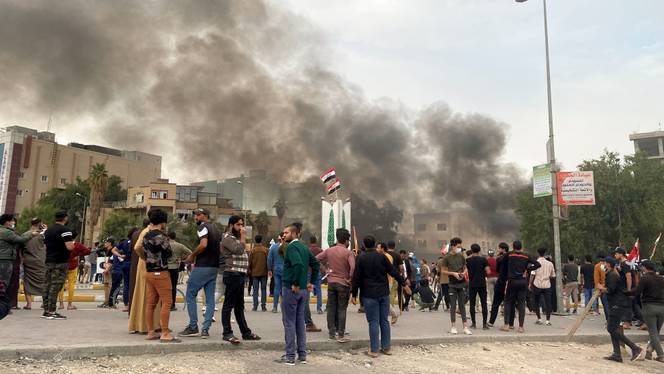
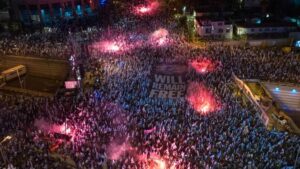
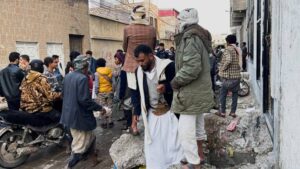
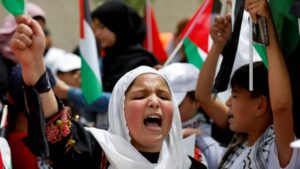
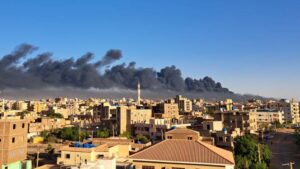

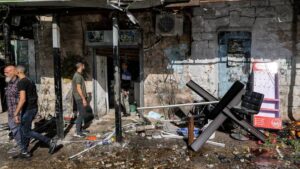
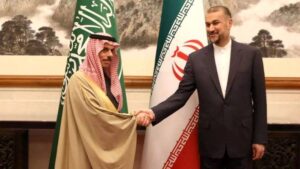
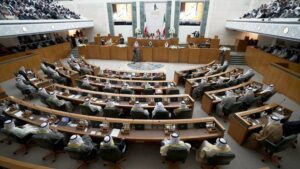
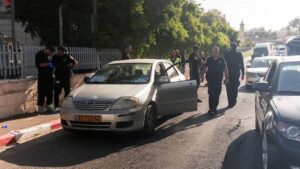
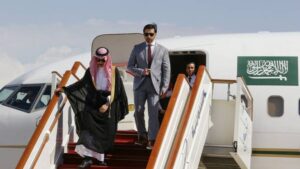
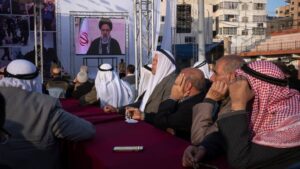
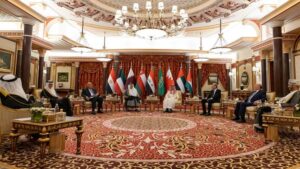
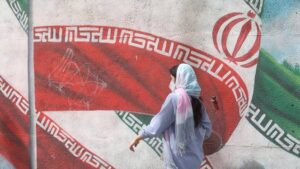
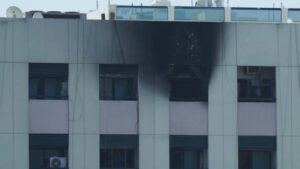
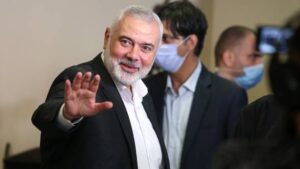
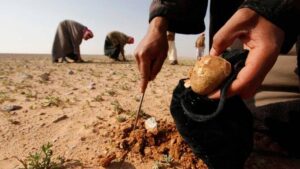

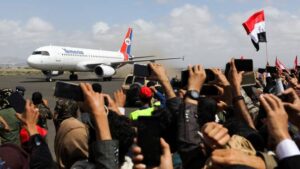
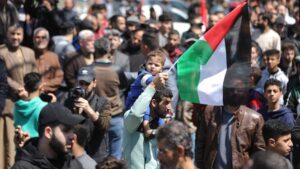
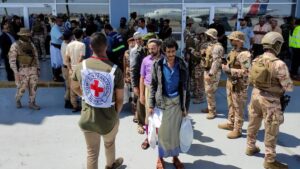

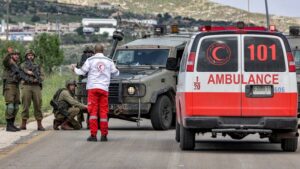
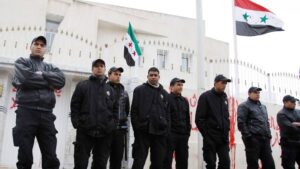
![Deputy Minister of Saudi Foreign Ministry, Waleed El Khereiji [R], meets with Syrian Minister of Foreign Affairs Faisal Mekdad in Jeddah, Saudi Arabia, on April 12, 2023.](https://www.infonewsall.com/storage/0m_153832_sau20230412saudiarabiasyria_1681335069352-300x169.jpg)

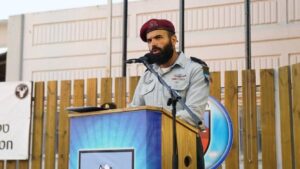
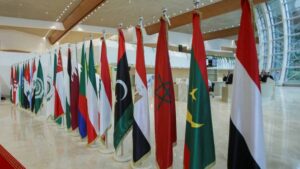
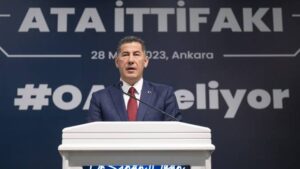
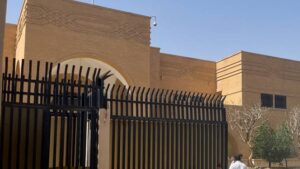
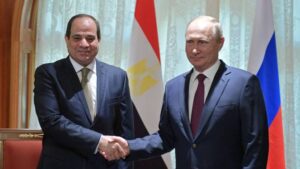
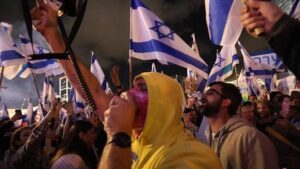
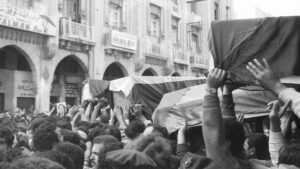
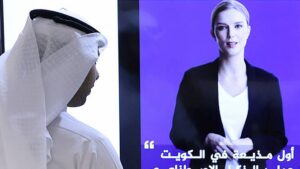
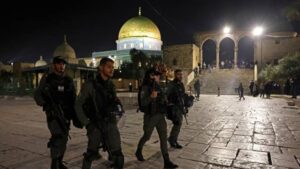
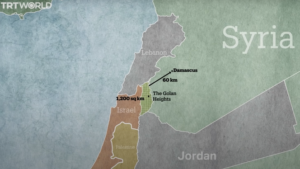
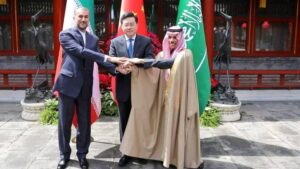
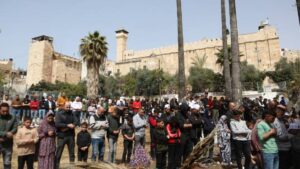
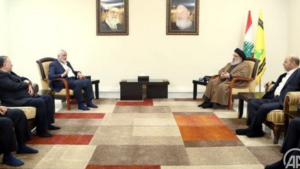
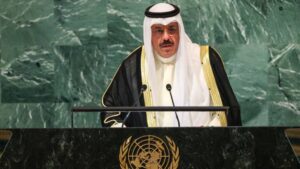
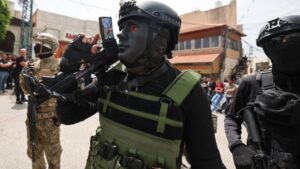
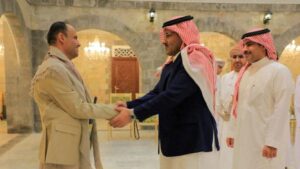
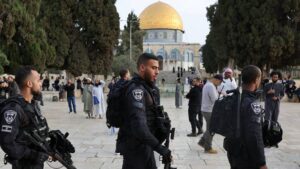
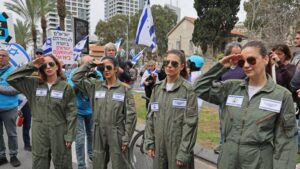
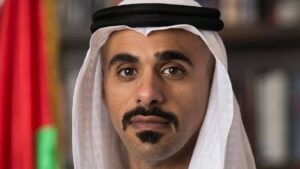
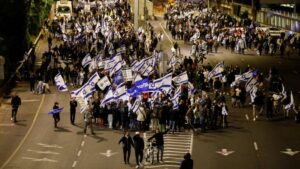
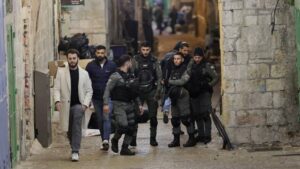
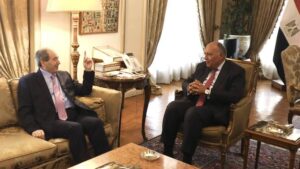
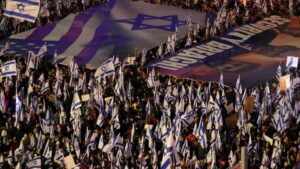
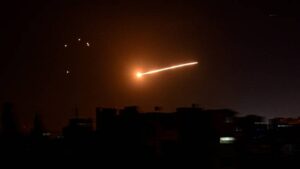
Be First to Comment